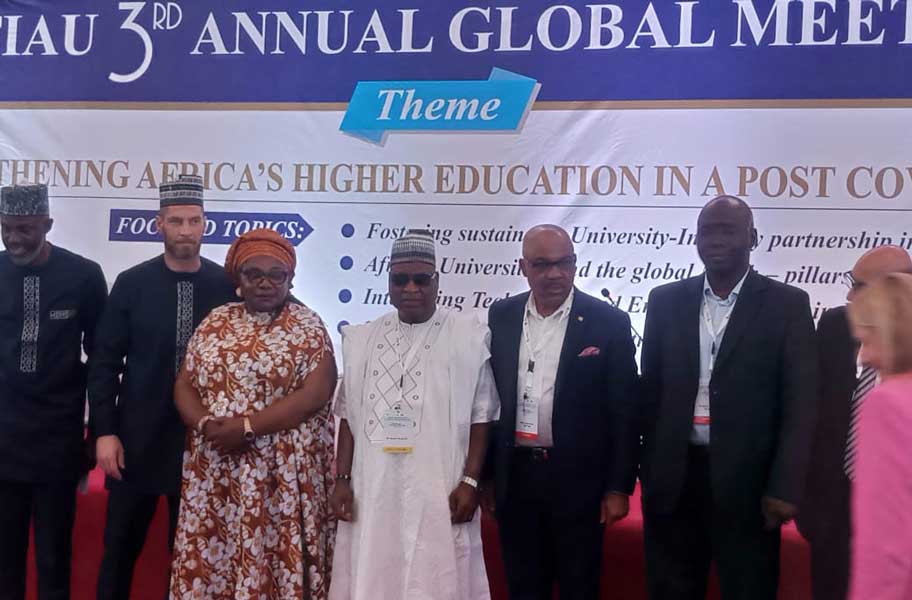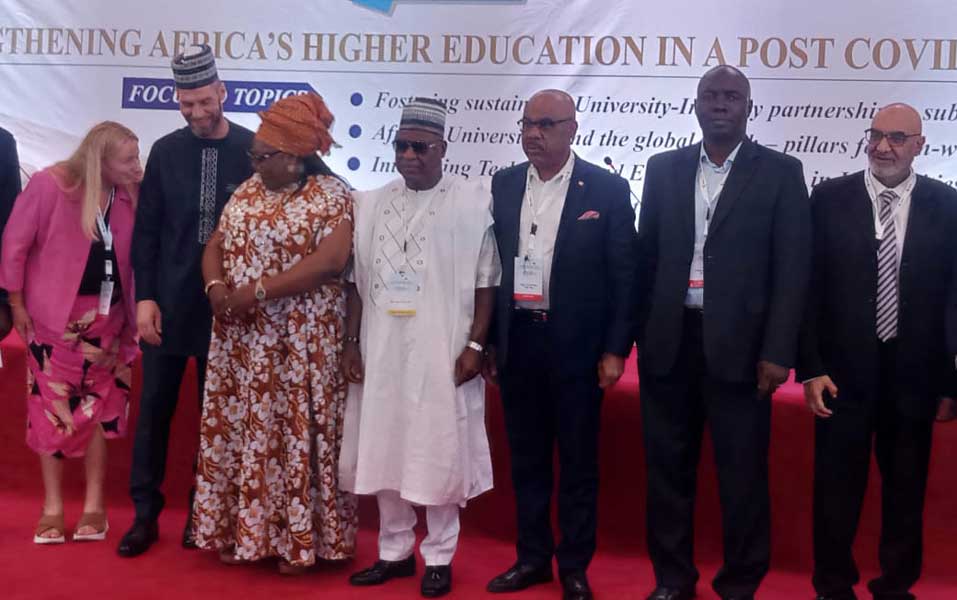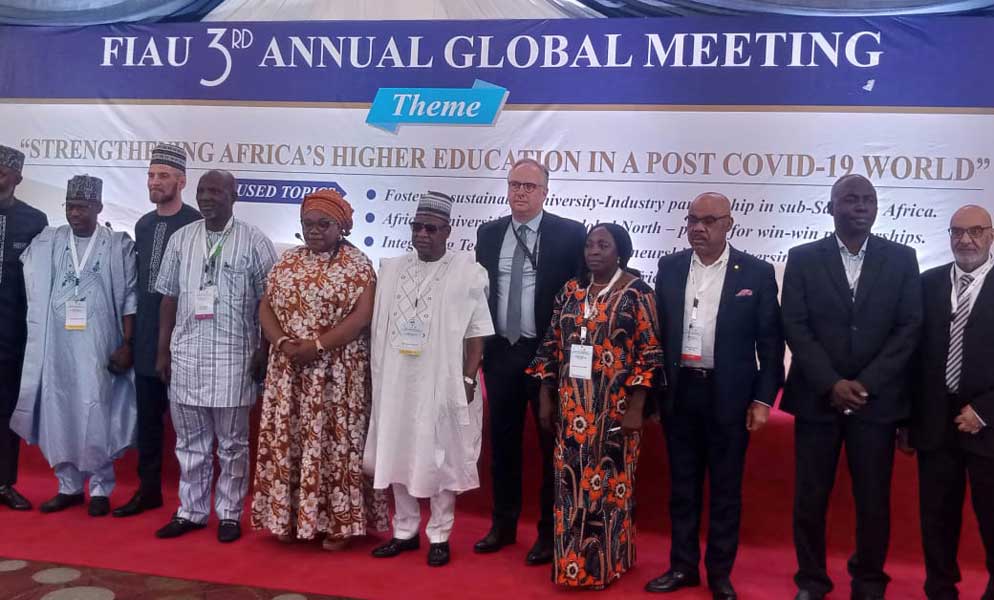To Tackle Unemployment, ITF Plans Conversion Of Skills Training Centres To Innovation, Entrepreneurship Hubs
The Industrial Training Fund has unveiled plans to convert its Skills Training Centres (STC) located in Lagos, Kano, Kogi, Abuja and Plateau and the vocational wings which are attached to its Area Offices to hubs for innovation and entrepreneurship (e-Hubs).
The Director-General of ITF, Sir Joseph Ari disclosed this on Friday in Abuja at the 3rd Annual Global Meeting of the Forum for Innovation in African Universities.
Advertisement
The event which was attended by stakeholders in the education sector had as its theme, “Strengthening Africa’s higher education in a post Covid-19 world.”
Speaking at the event, Ari said that with the conversion of the Skills Training Centres (STC) to hubs for innovation and entrepreneurship, schools of higher learning in Nigeria and other stakeholders can use these as incubation centres and vehicles for innovation and creativity.
Ari stated that in all of its over 50 years of existence, the ITF has been at the forefront of innovation in Nigeria, adding that the impact of its efforts has transcended the Human Resources Development (HRD) Sector with varying degrees of impact on the sectors of the economy including Higher Education.
According to him, the Students Industrial Work Experience Scheme (SIWES), which emerged out of research by the Fund indicating the gap between theories in schools of higher learning and practices in industries is a prime example of one of such innovations.
Advertisement

Through SIWES, he stated that students of tertiary institutions of higher learning from Engineering Technology and allied disciplines, acquire practical skills in industries before their graduation thereby easing the transition from the classroom to the industry floor.
He said, “It will not be farfetched to assert that the quality of the Nigerian workforce could conceivably have been worse without practical exposure to industries before graduation. Other novel practices introduced by the ITF in the HRD sector have served to fundamentally change practices in the sector.
“As a forward-looking institution that places a premium on creativity and innovation, the Industrial Training Fund aligns its policy direction to prevailing global trends and government policy thrusts.
“One such policy and vision review is our current policy direction tagged: Re-Engineering Skills for Sustainable Development, which gave birth to the institutionalisation of the National Apprenticeship and Traineeship System (NATS).
Advertisement

“NATS is a globally accepted scheme to optimise apprenticeship and traineeship and to ensure a seamless transition between formal and informal education and will inevitably lead to the full adoption of National Skills Qualification, which will greatly enhance interaction between industries and academia.
“It will equally prepare graduates of our tertiary institutions for the world of work having undergone internships in industries. In addition, it will serve to resolve the lingering problems of certification and standardization of curricula and assurance of standards of our technicians. In a way, NATS will enhance efforts to resolve the existing dichotomy between degree and HND holders.”
Ari also stated that the ITF has made a formal submission to the Federal Government for the establishment of Centres for Advanced Skills Training for Employment (CASTE) in the six Geo-political Zones, which can be used for graduate upskilling and reskilling and the overall capacity development of Nigerians in TVET.
“Although, not an exhaustive account of innovations that we have embarked upon over the years, it is suggestive of the direction that the ITF is willing to take to ensure that innovation and creativity are institutionalised and entrenched in our system.
“Our experience over the years has shown that more can be achieved with greater collaboration and synergy. I will therefore use this opportunity to invite Tertiary institutions and other relevant agencies to work with us to drive the growth of our dear country through innovation,” he added.
Advertisement
He said this forum is timely for Nigeria as resolutions that will emerge will greatly assist the administration of President Bola Ahmed Tinubu, that has already shown his willingness to reform tertiary education in Nigeria by signing into law the Access to Higher Education Act, 2023 otherwise known as the Student Loan Act. This Act.
He explained that by signing this Act as his first executive action in office, Tinubu has indicated in bold terms that he is committed to breathing life into the failing tertiary education system in Nigeria.
However, for the President’s vision to become a reality, Ari stated that it is pertinent for regulators, Government Agencies, employers of labour and multilateral institutions to continue to brainstorm and generate implementable ideas that will further shape his plans and actions, especially concerning policies on tertiary education in Nigeria.
He added that the forum provides a veritable platform and opportunity for the ITF and other stakeholders to not only address the issues at hand but also work towards coming up with workable solutions that will greatly assist the President in this regard.
In his speech at the event, the Permanent Secretary, Federal Ministry of Education, Mr Andrew Adejoh said the prospect for making significant improvements in higher education for the African and indeed Nigerian universities holds great promise for Africa’s drive towards becoming the continent of choice.
He said the initiative for establishing the Forum for Innovation for Africa investors in 2019 was the direct response to the adverse effects of the COVID-19 pandemic on Africans education sector.
“I am very pleased that the forum encourages intellectual debates and knowledge has changed quite closely with highly reputable global and regional partners, to pool resources to support African universities.
“This is what the continent needs in this post pandemic era, to enable us to overcome the challenges brought about by the pandemic, and most importantly, learn and get ready for mitigating such impacts of outbreaks,” he added.
Also speaking, Klaus Schneider, who is the Founder of FIAU stated that a new kind of momentum is needed to drive progress made in the education sector even further, noting that in the light of COVID-19 new technologies are needed to drive higher education.
“I want to focus on entrepreneurship and innovation to create shops by equipping young people with the right mindset and skills needed to be either self-employed or become a valuable employee in any organization,” he added.
ENDS



